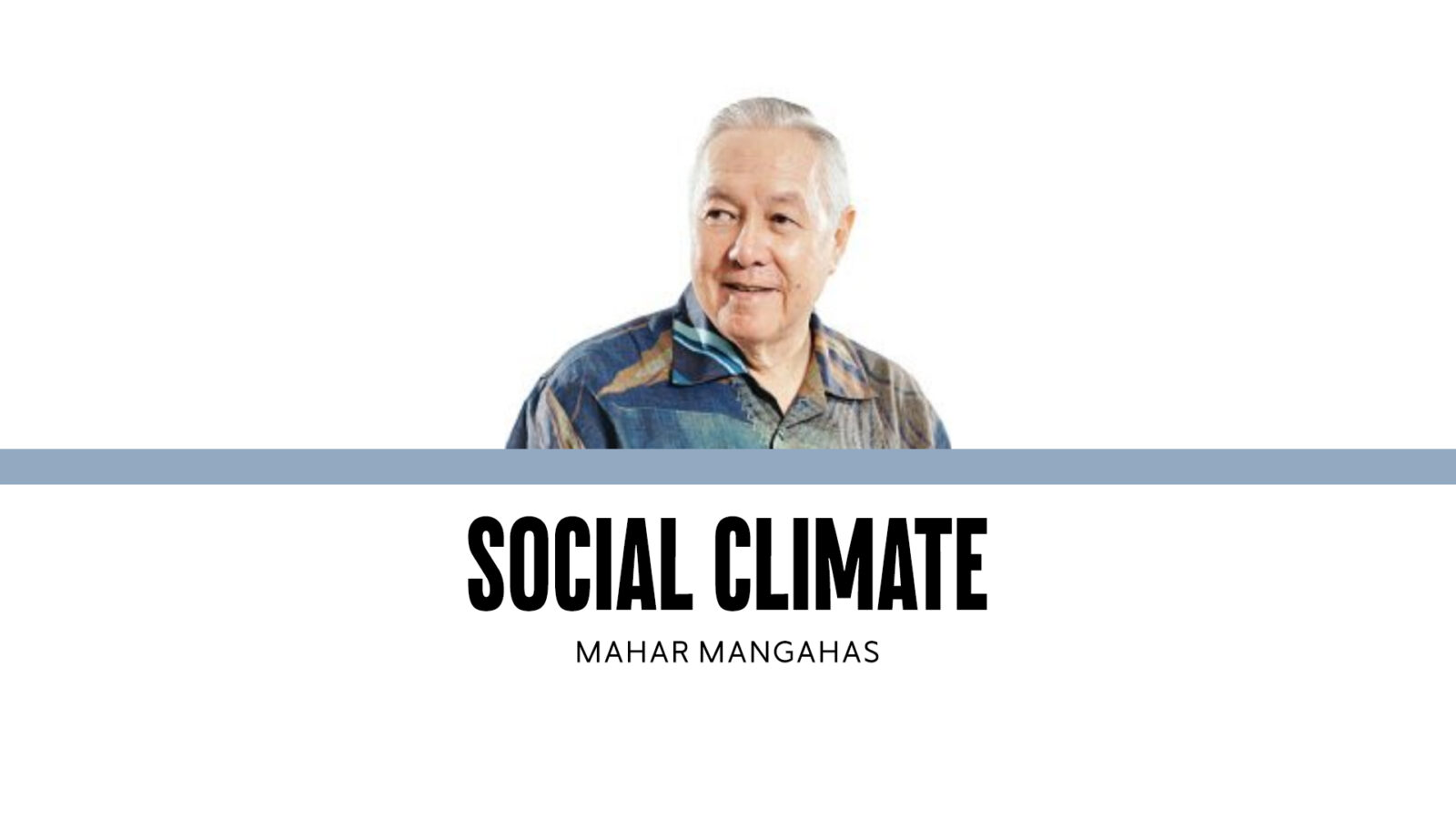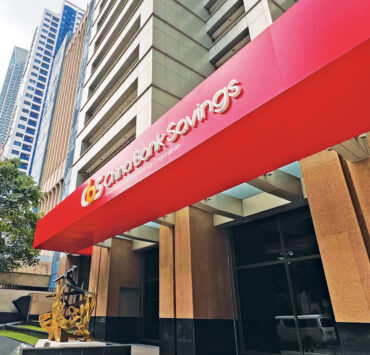Our trust in other countries

To be “friend to all, enemy to none” is a good, cautious policy, when you’re unfamiliar with whom you’re dealing with. It’s less extreme than “love one another,” and quite far from “love your enemies,” which are teachings of Jesus of Nazareth. I recall the late Onofre D. Corpuz telling his mentees, myself included, that the ancient Greeks took care to be polite to strangers, because they had stories of times when strangers were gods in disguise.
We, Filipinos, have varying degrees of trust—tiwala in Filipino—in other countries, depending on what country and what time period. Periodically, Social Weather Stations (SWS) polls Filipino adults as to whether they have very much, much, neither much nor little, little, or very little trust in a given country, or if they know nothing about the said country. (Observe that fence-sitting is an upfront answer; it’s realistic that some people don’t want to be on either side of the fence. Polls that demand an either/or answer are typically done by telephone, rather than face-to-face, which is the superior mode for learning opinions.)
The surplus of the two trustful opinions over the two distrustful ones is called the net trust rating of that country. In principle, this net rating goes from +100 to -100, i.e., from unanimous trust to unanimous distrust. In practice, the range is narrower, but still wide.
Trust in what, exactly? Note that the survey question states only the country’s name, not its people, nor its government, nor anything else about it. Survey respondents may interpret questions as they wish; interviewers are trained not to dispute the responses.
In answering this simple question, I would say that the survey respondents are referring to the country’s people, its government, and its other institutions that they know of, at the same time.
The trust of Filipinos in other countries ranges widely. For example, in December 2024, the SWS ratings of trust in other countries were: United States, +61; Japan, +38; Australia, +36; Taiwan, +13; Israel, +9; Ukraine, -4; Russia, -4; Lebanon, -4; Palestine, -4; and China, -30. These numbers are the latest of the series, from the 1990s to 2024, in the SWS 2025 Survey Review (sws.org.ph, posted on 2/19/25). The periodic SWS agenda, which is nonsponsored, reflects certain countries’ relevance to world affairs, as we see it.
We use the term ‘neutral’ for ratings that are single-digit, whether positive or negative, to acknowledge that they are statistically the same as zero. We use the term ‘good’ for ratings of +30 and up, and the term ‘bad’ for ratings of -30 or worse. There are symmetric terms for other ranges.
My guess is that most respondents try to imagine, most of all, the conditions of Filipinos, especially our overseas workers, in those countries. We know that Saudi Arabia, for example, is a much-trusted country, even though it’s not regularly included in our surveys. We have many OFWs based there; they must be sharing their experiences with their relatives here. Familiarity with another country tends to breed better understanding, and hence more appreciation, of it.
The more OFWs that a country hosts, the more we tend to trust it. Harsh treatment of OFWs in that country does the opposite. Singapore’s trust rating went negative in 1995, after the tragic execution of Flor Contemplacion; but it recovered eventually.
Most Filipinos don’t hold grudges forever. We know this from SWS polls about possible leftover feelings from the American, the Japanese, and the Spanish occupations; the polls are no longer embargoed—is any history professor interested?
SWS has trust ratings for foreign personalities, too. The record highest-scorer was the late Pope Francis (“The most trusted Pope,” 4/26/25). The lowest trust-scorer that I remember was Iraqi president Saddam Hussein, who hit minus-70 after his invasion of Kuwait. Our to-do list for future trust-polling includes US president Donald J. Trump and Israeli prime minister Benjamin Netanyahu.
In the US, Trump’s net approval ratings already slipped into negative territory two months ago. The same is happening elsewhere—see “US image declines in many nations amid low confidence in Trump,” www.pewresearch.org, posted 6/11/25—so, is it also the case in the Philippines? Let us see.
Dr Mahar Mangahas is a multi-awarded scholar for his pioneering work in public opinion research in the Philippines and in South East Asia. He founded the now familiar entity, “Social Weather Stations” (SWS) which has been doing public opinion research since 1985 and which has become increasingly influential, nay indispensable, in the conduct of Philippine political life and policy. SWS has been serving the country and policymakers as an independent and timely source of pertinent and credible data on Philippine economic, social and political landscape.





















